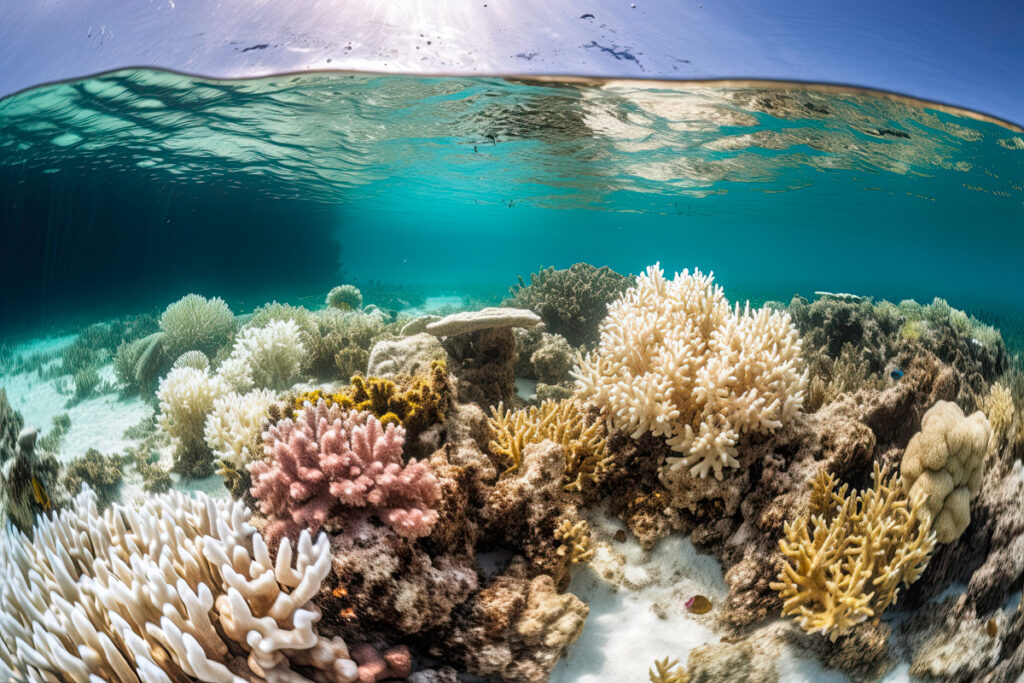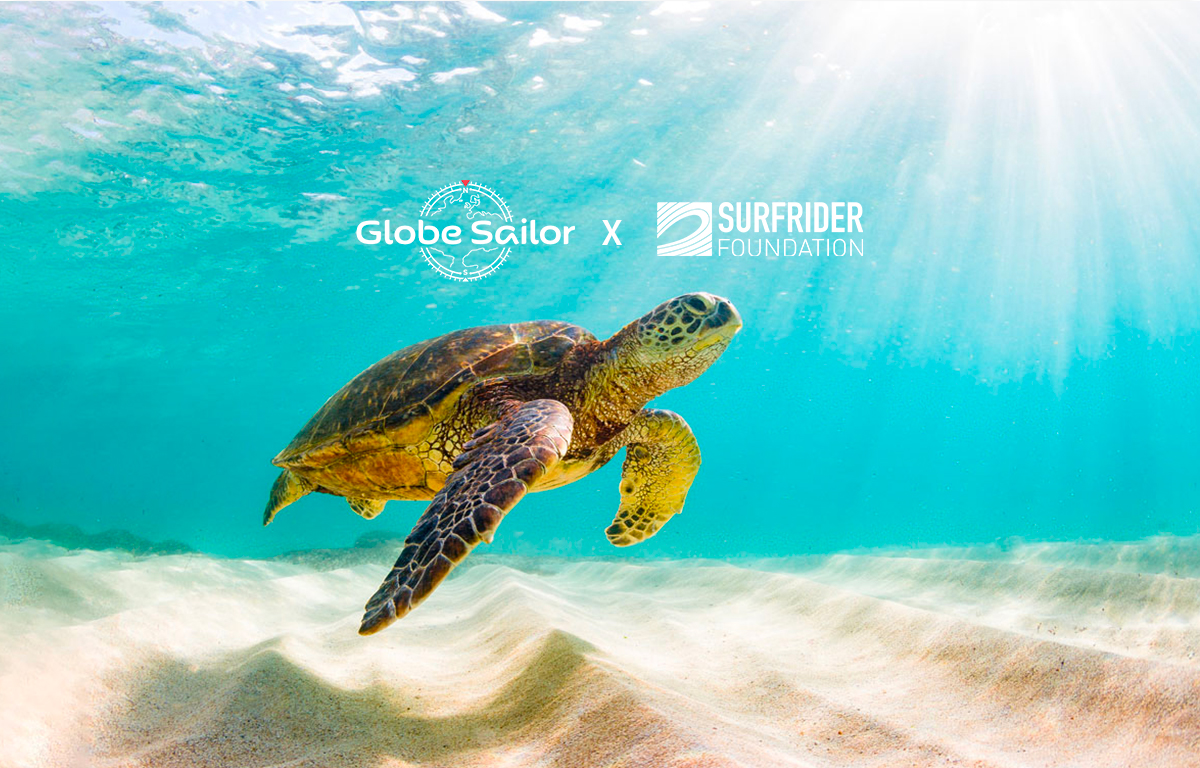We all have a role to play in taking care of our planet. If you’re planning to embark on a sailing adventure and want to ensure you respect the natural environment and minimize your carbon footprint, it’s important to adopt eco-conscious habits both on land and at sea. In honour of World Ocean Day, and our ongoing commitment for environmental care, we have created a guide that promotes responsible and sustainable sailing practices, helping to safeguard our precious ecosystem.
• Travel Responsibly
Where possible, choose the most environmentally friendly way to travel, looking at train travel as well as flights, before finalising your trip.
GlobeSailor have partnered with Option Way which allows you to choose the most eco-responsible flight with the least Co2 emissions.
You should also consider where, when and how you travel. Some countries rely heavily on tourism as their main source of income. To cut down on the impact travelling has on the environment, think about taking less trips each year (reducing your number of flights/train journeys), and consider a longer stay, allowing you more time to discover a new country and culture.
• Support Local Economy
When traveling, there are numerous ways you can contribute to the local economy. Opt for accommodations that are locally owned and explore independent restaurants and shops. These businesses are more inclined to support the local community by sourcing their products, such as food, drinks, decorations, and entertainment, from local suppliers. Additionally, they often hire local residents, which helps to boost the local workforce. Not only will you feel good knowing that your spending supports the local economy, but you might also save money and have a more genuine experience.
Another way to support the local economy is by purchasing local products. Take advantage of the opportunity to acquire unique artwork, handmade items, souvenirs, and clothing that reflect the local culture. Indulge in the authentic flavors of the local cuisine, prepared in traditional ways. It’s important to be discerning when shopping and avoid purchasing goods made from coral or ivory. By making thoughtful and responsible choices, you can contribute positively to the local economy while respecting the environment and local customs.
• Sailing Close to Home
Commit to discovering your own history and culture. Many of us take flights and travel to ‘unknown’ destinations without realising the beauty that exists right on our doorstops. Take time to discover locations near you, that are off the beaten track, or discover your country by boat – offering a totally different point of view.
For more information, check out our blog post about chartering a yacht close to home.

• Reduce Your Packaging
Choosing to reduce packaging is more beneficial than relying solely on recycling. Whenever you go grocery shopping, try to minimize packaging by selecting items that come with less packaging or are packaged in materials like cardboard, glass, or tin. These materials are not only more environmentally friendly but also offer the advantage of being easily reusable or decomposable. By opting for products with minimal packaging or packaging that can be easily recycled or repurposed, you contribute to reducing waste and promoting a more sustainable lifestyle.
Remember to remove the packaging and dispose of it in the appropriate bins at the port before boarding.
Avoid disposable dishes and plastic water bottles. Instead, where possible, purchase 5 litre containers of drinking water and use them to refill your re-useable water bottles.
Be mindful of water resources and ensure your consumption of water onboard is not excessive.
During your charter, ensure that packaging is removed from products and disposed of while inside the boat, to prevent any items from blowing away.
Tip: Use fabric bags when shopping during your stopovers and avoid collecting more plastic onboard!
For more information, check out our blog post about reducing your onboard waste.
• Waste Management
If you’ve followed our earlier advice, you should have less waste to deal with during your charter. Proper waste sorting and management will allow you to make the most of your trip. When it comes to cardboard packaging, it’s easy to fold and store it conveniently. For organic waste, it’s a good idea to set aside a small bin or bucket. Remember to dispose of this waste more than 12 miles away from the nearest coast or at designated disposal points in ports. When it comes to glass items like wine or beer bottles, using a secure box to store them is a smart move. Just make sure the box is kept in a safe place throughout your journey.
During your stopovers at the port or at anchor, disembark with your waste and dispose of it in the recycling bins provided.
MARPOL (the International Convention for the Prevention of Pollution from Ships) outlines the rules for the management of waste at sea. This prohibits throwing plastic objects and paper, glass or metal objects into the sea. MARPOL tolerates the dumping of food waste more than 12 miles from the nearest land.
We also advise you to pay attention to the quantities of food on board in order to limit waste. If you have leftovers at the end of your cruise, you can share them with your crew. Consult with the rental base or the housekeeping team to find out if certain foods that can be stored can be left for sailors who embark after you.
To find out more, we invite you to read our article ‘Top tips for refuelling’.
• Collect Waste
If you come across floating waste (nets, plastic bags, plastic bottles, etc.), manoeuvre to collect it! You will have the opportunity to make a small gesture for the planet while training your crew with the manoeuvre! You can also organise a waste collection on a beach, a fun activity to occupy your children during a stopover.

• Use Biodegradable Products
In order to protect the seas, oceans and marine fauna and flora, it’s essential to use biodegradable cleaning and hygiene products: dishwashing product, shower gel, shampoo, sunscreen, etc. There are even soaps and shampoos that can be used in seawater, perfect for showering on deck using less fresh water!
• Use Port/Marina Infrastructure
Most ports and marinas have facilities designed to make your life on the boat easier and preserve the environment:
- Emptying spaces for black water and grey water
- Sanitary blocks: dishes, showers, toilets
- Sorting points for recycling and decomposable waste
Tip: Use a funnel when you’re refilling your fuel to avoid any spillages in the port.
The European Clean Ports certification, which meets specific and demanding criteria, is awarded to ports that make concrete commitments to preserve the environment.
• Navigate by Sail rather than Motor
Whether you’re sailing a monohull or a catamaran, make it a priority to hoist the mainsail and unfurl the headsail at the earliest opportunity. By aligning your itinerary with the weather conditions, you can maximize your progress using the power of the wind. This approach helps to minimize fuel consumption, save costs at the gas pump, and reduce your carbon footprint.

• Practice Responsible Fishing
To ensure the preservation of the marine environment and the species that live there, fishing regulations apply when onboard a boat. Before casting your line, it’s important to be aware of prohibited fishing areas, adhere to limitations, and utilise the proper equipment.
• Respect Marine Life
GlobeSailor takes you sailing to more than 180 destinations around the world. During your charter in the Mediterranean, Indian Ocean or Pacific Ocean you’ll be closer to nature and will be able to enjoy the natural beauty that surrounds you. To make the most of it while preserving the fauna and flora, you must adhere to these rules:
- Do not collect shells, stones and corals
- Slow down if you are driving and approach a wild animal
- Stay away from natural areas where wildlife come to feed, rest or breed
- Anchor with care: avoid fairground anchorages and instead opt for organized anchorages on buoys or in sand or mud
You’re all set to embark on a sustainable and responsible journey! By heeding our advice, you’ll become an eco-conscious boater, caring for the elements around you and playing a part in preserving our seas and oceans. Thank you for your commitment!



One thought on “The GlobeSailor Guide to responsible sailing and preserving the environment during your charter”
Comments are closed.